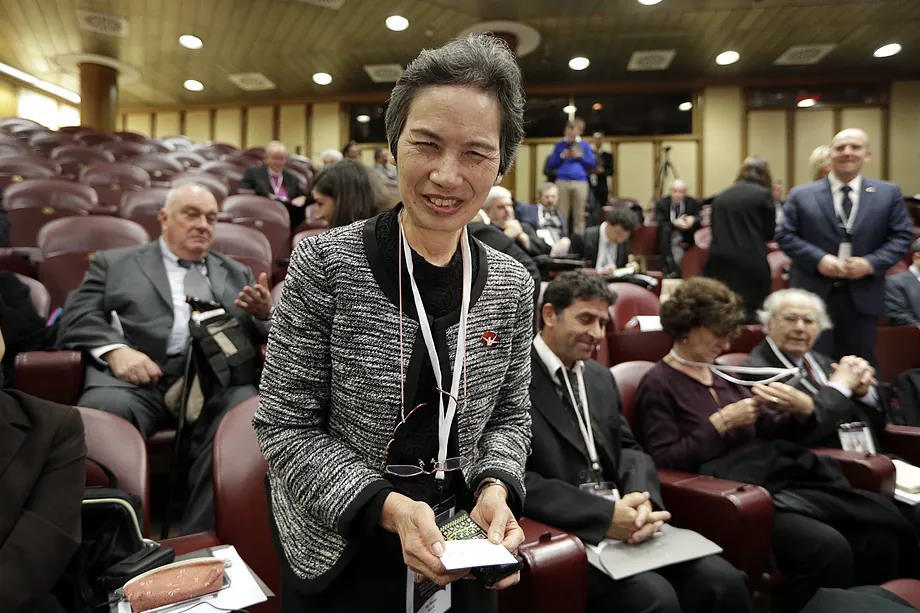The Japanese organization Nihon Hidankyo, composed of 'hibakusha,' as the survivors of the atomic bombs in Hiroshima and Nagasaki are known, has been awarded the Nobel Peace Prize 2024. The group, founded in 1956, has been campaigning for decades for the abolition of nuclear weapons.
"This popular movement of atomic bomb survivors receives the peace prize for their efforts to achieve a world free of nuclear weapons and for demonstrating through witness testimonies that nuclear weapons should never be used again," said the Nobel Committee in a publication on X.
The winner was announced at a ceremony held on Friday in Oslo. The committee's president, Berit Reiss-Andersen, praised the "extraordinary efforts" of the Japanese organization whose campaign has "greatly contributed to establishing the nuclear taboo." The members of the awarded group travel through prefectures using their personal stories to raise awareness about the terrible consequences of using nuclear weapons.
On August 6, 1945, shortly before the end of World War II, the United States dropped a nuclear bomb on the Japanese city of Hiroshima. There were 140,000 deaths. Three days later, a second American bomb hit Nagasaki, killing about 74,000 people. The two atomic attacks led to Japan's surrender on September 2 of that year.
For almost eight decades, on August 6 and 9, in Hiroshima and Nagasaki, the 'hibakusha' lead solemn ceremonies to remember the atrocious bombing, observing a minute of silence for the victims and calling on world leaders for nuclear disarmament.
"When the bomb exploded, my mother was carrying me on her back on the way to the hospital because I was sick. We were thrown by the blast, but miraculously, somehow, we both survived," recounted Nihon Hidankyo's Deputy Secretary-General, Toshiki Fujimori (80 years old), while attending an event in 2016 where former U.S. President Barack Obama laid a wreath at the Hiroshima Peace Memorial Park.
"We have asked many times for a public apology that acknowledges and admits that atomic bombs were inhumane and also contrary to international law," Fujimori continued.
Other 'hibakusha' from the Nobel Peace Prize-winning group were also present last year at the Hiroshima museum during an event attended by the G-7 leaders, with U.S. President Joe Biden at the forefront, who were holding their annual summit in the Japanese city and participated in an event to commemorate the bombing victims.
According to the latest official records of Nihon Hidankyo, dating back to 2016, there were 174,080 survivors living in Japan. After the announcement of the Nobel Prize, which is endowed with one million euros, the Norwegian committee explained that it sought to "honor all atomic bomb survivors, who, despite physical suffering and painful memories, have chosen to use their costly experience to nurture hope and commitment for peace."
"One day, the 'hibakusha' will no longer be among us as witnesses to history. But with a strong culture of remembrance and constant commitment, the new generations in Japan are passing on the experience and message of the witnesses," the committee's statement continued.
The award was given at a time when nuclear powers around the world are modernizing their arsenals, authoritarian regimes like Iran continue to work to acquire these weapons, and Russian President Vladimir Putin has repeatedly raised the real possibility of using nuclear weapons if the West provides more military support to Ukraine.
The annual report published by the Stockholm International Peace Research Institute (SIPRI), a monitoring body, noted that the nine nuclear-armed states in the world - the United States, Russia, the United Kingdom, France, China, India, Pakistan, North Korea, and Israel - had increased their reliance on these weapons.
Wilfred Wan, one of the SIPRI researchers, stated that nuclear weapons had never before "played such a prominent role in international relations since the Cold War." The report, which indicated that the United States and Russia possessed nearly 90% of all nuclear weapons, concluded that nuclear countries had modernized their arsenals.
On the other hand, the International Campaign to Abolish Nuclear Weapons (ICAN) stated that the total combined spending on nuclear arsenals increased by $10.7 billion last year. The United States was responsible for 80% of the spending. China was the next largest investor, followed by Russia.
